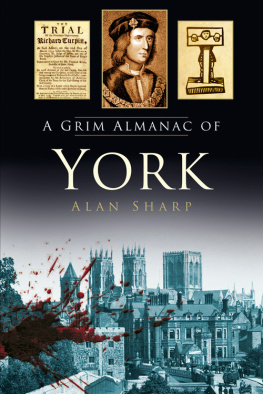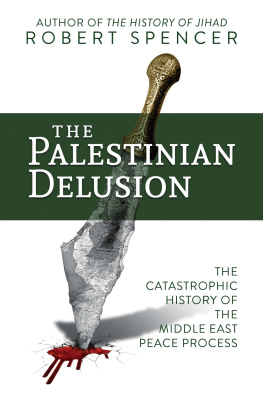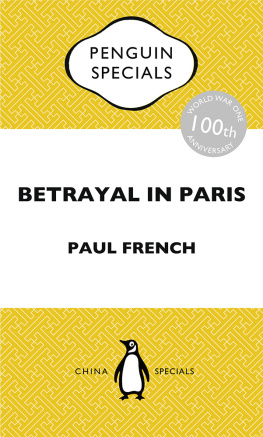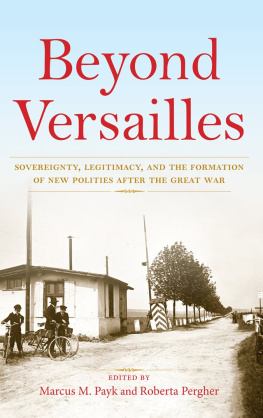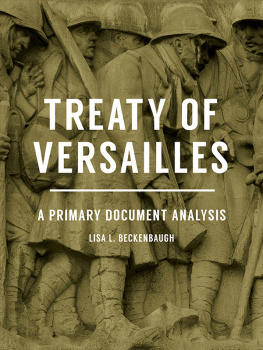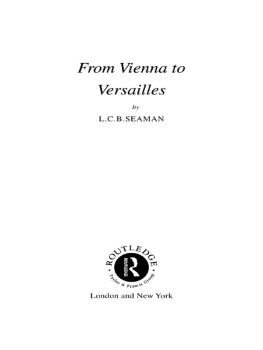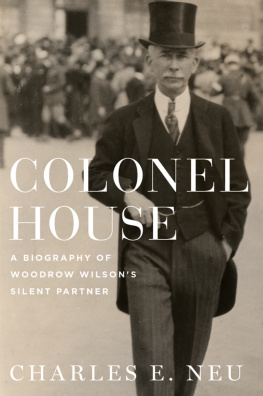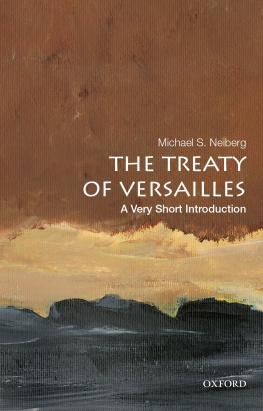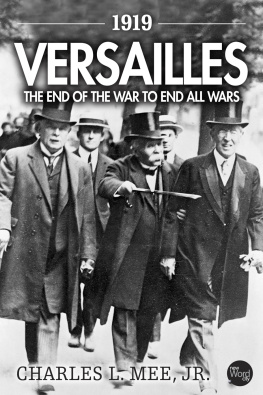Introduction
There is no single person in this room who is not disappointed with the terms we have drafted.
Lord Robert Cecil, Paris, 30 May 1919
The Peace Treaties signed in various Parisian palaces and suburbs at the end of the First World War have not enjoyed a sparkling reputation. In the words of Jan Christian Smuts, the South African delegate and close colleague of the British Premier, David Lloyd George, such a chance comes but once in a whole era of history and we missed it. The prevailing perception remains that this was a huge opportunity spurned; that the Treaties at the end of the war to end war and to make the world safe for democracy delivered neither outcome, and that they had a large responsibility for the establishment of the dictatorships of the inter-war period and the outbreak of a second conflagration in 1939. In the post-Second World War and Cold War eras they continue to attract condemnation for their legacies in the Balkans, the Middle East, the Russian borderlands, the former European empires in Africa and Asia, and indeed worldwide, particularly in the wake of two seminal events, 11/9 (the fall of the Berlin Wall on 9 November 1989) and 9/11 (the attacks on the World Trade Center in New York and the Pentagon in Washington on 11 September 2001).
I have not found one single person here who approves of it as a whole. While in most cases particular clauses can be defended, the total effect is, I am sure, quite indefensible and in fact is, I think, quite unworkable.
JAMES HEADLAM-MORLEY, JUNE 1919
Smuts disappointment, shared by Lord Robert Cecil, who had also played a prominent role in the drafting of the League of Nations Covenant, was typical of many attending a meeting of British and American experts in May 1919. They were anxious to embody their Peace Conference cooperation and experience into an organisation with parallel branches in each country designed to deliver an essential aspect of President Woodrow Wilsons brave new world an informed, aware and trusted public opinion which might encourage leaders to revisit and make the much needed improvements to the settlement. Their misgivings were expressed by Alfred Zimmern, who told Arnold Toynbee, a fellow member of the influential British Political Intelligence Department, that Paris disgusted and depressed me more than I can say. The Majestic and the Crillon [the main hotels in which the British and American delegations were based] were full of unease and heartbroken men. The PIDs effective leader, James Headlam-Morley, who had helped to find solutions to difficult questions such as the future of the Saar, Danzig and the protection of national minorities, added his testimony, writing to his brother on the eve of the signature of the Treaty of Versailles, that I have not found one single person here who approves of it as a whole. While in most cases particular clauses can be defended, the total effect is, I am sure, quite indefensible and in fact is, I think, quite unworkable.
Their disquiet was emphasised and publicised by another former Conference participant, John Maynard Keynes, a Treasury official who resigned from the British delegation in June 1919 to write one of the most influential polemics of the 20th century, The Economic Consequences of the Peace, published in December 1919. This stinging attack on the Allied leaders and all their works, in particular reflecting Keynes bitter disappointment with Wilson, has played a major role since in shaping the widely held perception of the settlement as a failure and a missed opportunity. Later memoirs by Conference members such as Harold Nicolson, Headlam-Morley, Stephen Bonsal and Robert Lansing did little to dispel the contemporary conclusion of a distinguished British soldier, Archibald Wavell, who served in both World Wars, that After the war to end war they seem to have been pretty successful in Paris at making a Peace to end Peace. The outbreak of a second major continental war in September 1939 seemed to confirm both Wavells observation and the verdict of the French Commander of the Allied Forces on the Western Front, Marshal Ferdinand Foch, who allegedly declared of the Treaty, This is not Peace. It is an Armistice for twenty years.
The renewed conflict in Europe in 1939, which escalated into a new world war in 1941, incurred costs and consequences even more far-reaching than the inconceivable losses, by contemporary standards, of the First World War. Unsurprisingly, in those circumstances, later commentators continued to endorse the contemporary condemnations of the settlement and particularly the Treaty of Versailles. The American diplomat George Kennan wrote in 1985, I think its increasingly recognized that the Second World War was an almost unavoidable prolongation of the first one, resulting from the very silly, humiliating and punitive peace imposed on Germany after World War I. Kennans conclusion is echoed by the dust-jacket blurb of foreign correspondent David Andelmans 2008 book, A Shattered Peace: Versailles 1919 and the Price We Pay Today: For more than half a century, it has been widely recognised that the unfettered revenge against Germany and the Austro-Hungarian Empire that was the cornerstone of the Treaty of Versailles created the circumstances that led inevitably to World War II. In 1996 the historian Jay Winter declared, The Peace Conference which ended the Great War was more about punishment than about peace. Perhaps inevitably, anger and retribution followed four years of bloodshed, ensuring the instability and ultimate collapse of the accords signed in the Hall of Mirrors at Versailles on 28 June 1919. The road to World War II started here. According to The Economists summary of the Millennium in December 1999, The final crime was the Treaty of Versailles, whose harsh terms would ensure a second world war. These indictments have been formidably supported by Henry Kissinger and Douglas Hurd, respectively a former American Secretary of State and a British Foreign Secretary.


